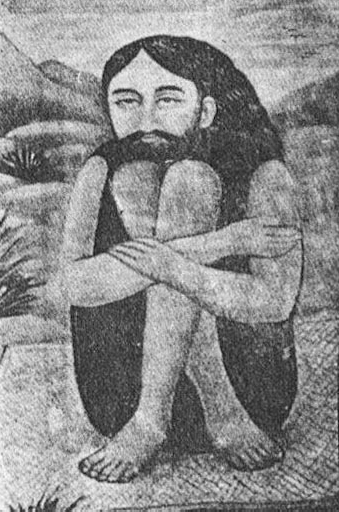The saint-poet of Sindh
By Anwer Pirzado
SHAH Abdul Latif Bhitai, the greatest saint-poet of Sindh, was born in 1689 at Sui Kandhar, a small hamlet, now lying deserted near Bhit Shah on the Hala-Tando Adam Road in Hyderabad district. His father, Shah Habib, was the grandson of Shah Karim of Bulri, a saint-poet of his times. Bhitai’s ancestors are said to have migrated to Sindh from Central Asia.
In his youth, he fell in love with Saeeda Begum, daughter of Mirza Baig Arghun, the Mughal governor of Sindh. The ruler created a hostile environment for the family of the poet and they had to leave the area. While his father shifted to a nearby village, his youthful son became a wanderer in the wilderness. It was during his love affair that the young Bhitai started composing poetry. Later on, he was offered the hand of the damsel with whom he was in love. But by then he had become an ascetic who shunned family life. He started travelling far and wide in the company of mystics of the day. It is evident from his poetry that Shah travelled from Hinglaj in the southwest to Bikaner and Khambat in the east.
A stage came when Shah Latif decided to settle down on top of a sand dune (Bhit) located on the northern bank of Karar Lake, now called Bhit Shah, in the first decade of the 18th century. The inner feeling of the poet is reflected in one of his verses about the love story of Sassui-Punhoon in which he says: “Je Hitt Na Hoat Pasan, Se Keen-an Ketch Pasandiyun” (They who are unable to see the Hoat — Punhoon was a Hoat Baloch by caste — here, how can they see him even in Ketch?). In the process of his spiritual journey, he had realized that one should peep into one’s inner self to perceive divine reality.
The mature period of Bhitai’s mystic life began at Bhit Shah where he made it a daily routine to lead a group of singing Fakirs during a musical concert in the accompaniment of a five-string musical instrument, Dambooro. The classical poetry of the poets of the subcontinent besides his own used to be presented in these sitting. Shah Latif himself knew the music very well and reformed the Sindhi music to a great extent.
A musical tradition still exists at his mausoleum where his Fakirs sing his poetry collected in the form of Risalo (collection of Bhitai’s poetry) from dusk to dawn everyday.
As far his poetry is concerned it excels in idiom and philosophical content through Sindh’s classical folklore comprising popular love stories such as Sassui-Punhoon, Sohni-Mehar, Moomal-Rano, Sorath-Rai Diyach, Umar-Marui, Leela-Chanesar and Noori-Jam Tamachi, etc.
He used folklore as a vehicle for his symbolism to express his philosophy. His poetry reflects almost every aspect of life and has remained popular. Everyone from a youthful lover to a seasoned mystic, from a peasant to a suppressed woman, finds a message:
Sorrow, joys’ beauty constitute;
Joys without sorrows spurn;
By virtue of such sorrow’s mood
my love comes to my arms.
The poet lived in times of turmoil. He witnessed the invasion of Sindh by Nadir Shah in 1739, and the ransacking of his homeland by Ahmed Shah Abdali in 1747. He was 28 years old when Shah Inayat of Jhok was killed in 1718 after the first peasant movement was crushed by Mughals and Kalhoras in 1718. Suzerainty over Sindh by the Portuguese, Dutch and the East India Company also come to pass and poet saw the weakening of Mughal power.
There is a call to gallows, friends,
will any of you go!
Those who do talk of love may know
Risalo, the collection of Bhitai’s poetry compiled through oral tradition, was first published 134 years after his death in Leipzig, Germany, by Dr Ernst Trump. But, it was Dr H.T. Sorley who introduced Bhitai as one of the great poets to the west through his work “Shah Latif of Bhit,” published in 1940. Sorley counts Ibn Saidun, Victor Hugo, Hafiz, Ghalib, Iqbal and Bhitai as great poets of the world. The other western scholars of Bhitai were Dr Annemarie Schimmel and Gerd Lupke.
O God, may ever you on Sindh
bestow abundance rare;
Beloved! all the world let share
thy grace, and fruitful be.


No comments:
Post a Comment